„Mutter, ach Mutter, es hungert mich!
Gieb mir Brot, sonst sterbe ich!“
„Warte nur! Warte nur, mein liebes Kind!
Morgen wollen wir ernten geschwind!“
Und als das Korn geerntet war,
rief das Kind noch immerdar:
„Mutter, ach Mutter, es hungert mich!
Gieb mir Brot, sonst sterbe ich!“
„Warte nur! Warte nur, mein liebes Kind!
Morgen wollen wir dreschen geschwind!“
Und als das Korn gedroschen war,
rief das Kind noch immerdar:
„Mutter, ach Mutter, es hungert mich!
Gieb mir Brot, sonst sterbe ich!“
„Warte nur! Warte nur, mein liebes Kind!
Morgen wollen wir backen geschwind!“
Und als das Brot gebacken war,
lag das Kind auf der Totenbahr’!
Gieb mir Brot, sonst sterbe ich!“
„Warte nur! Warte nur, mein liebes Kind!
Morgen wollen wir ernten geschwind!“
Und als das Korn geerntet war,
rief das Kind noch immerdar:
„Mutter, ach Mutter, es hungert mich!
Gieb mir Brot, sonst sterbe ich!“
„Warte nur! Warte nur, mein liebes Kind!
Morgen wollen wir dreschen geschwind!“
Und als das Korn gedroschen war,
rief das Kind noch immerdar:
„Mutter, ach Mutter, es hungert mich!
Gieb mir Brot, sonst sterbe ich!“
„Warte nur! Warte nur, mein liebes Kind!
Morgen wollen wir backen geschwind!“
Und als das Brot gebacken war,
lag das Kind auf der Totenbahr’!
envoyé par Bernart Bartleby - 18/11/2016 - 08:53
Langue: italien
Traduzione italiana di Ferdinando Albeggiani, da The LiederNet Archive
MAMMA, MAMMINA! HO TANTA FAME (LA VITA TERRENA)
Mamma, mammina! Ho tanta fame
Mi sento morire, dammi del pane
"Aspetta, aspetta oh mio bambino
domani mattina semineremo il grano"
E quando il grano fu seminato
Gridava il bimbo senza più fiato
"Mamma, mammina! Ho tanta fame
Mi sento morire, dammi del pane"
"Bambino mio, pazienta un poco
Presto il grano sarà tutto raccolto"
E quando finì la mietitura
Il bimbo piangendo gridava ancora
"Mamma, mammina! Ho tanta fame
Mi sento morire, dammi del pane"
"Bambino mio, aspetta ancora
Domani faremo la trebbiatura"
E quando il grano fu tutto trebbiato
Ancora invocava il bimbo affamato
"Mamma, mammina! Ho tanta fame
Mi sento morire, dammi del pane"
"Bambino mio amato, devi aspettare
Il grano andremo a macinare"
E quando il grano fu macinato
Gridava il bimbo ormai stremato:
"Mamma, mammina! Ho tanta fame
Mi sento morire, dammi del pane"
"Bambino mio, aspetta un giorno
Il pane dovremo mettere in forno"
E quando alla fine il pane fu cotto
Il povero bimbo era ormai morto.
Mamma, mammina! Ho tanta fame
Mi sento morire, dammi del pane
"Aspetta, aspetta oh mio bambino
domani mattina semineremo il grano"
E quando il grano fu seminato
Gridava il bimbo senza più fiato
"Mamma, mammina! Ho tanta fame
Mi sento morire, dammi del pane"
"Bambino mio, pazienta un poco
Presto il grano sarà tutto raccolto"
E quando finì la mietitura
Il bimbo piangendo gridava ancora
"Mamma, mammina! Ho tanta fame
Mi sento morire, dammi del pane"
"Bambino mio, aspetta ancora
Domani faremo la trebbiatura"
E quando il grano fu tutto trebbiato
Ancora invocava il bimbo affamato
"Mamma, mammina! Ho tanta fame
Mi sento morire, dammi del pane"
"Bambino mio amato, devi aspettare
Il grano andremo a macinare"
E quando il grano fu macinato
Gridava il bimbo ormai stremato:
"Mamma, mammina! Ho tanta fame
Mi sento morire, dammi del pane"
"Bambino mio, aspetta un giorno
Il pane dovremo mettere in forno"
E quando alla fine il pane fu cotto
Il povero bimbo era ormai morto.
envoyé par Bernart Bartleby - 18/11/2016 - 08:53
Langue: anglais
La versione inglese di Judith Piepe, messa in musica da Peter Bellamy con il suo gruppo The Young Tradition”. Dal loro disco del 1967 intitolato “So Cheerfully Round”.
Testo trovato su English Folk Music
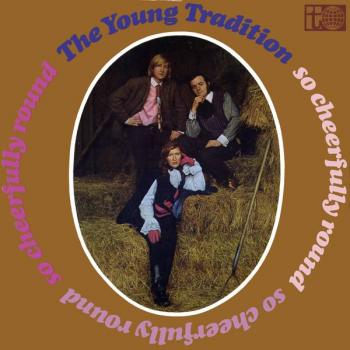
Testo trovato su English Folk Music

THE HUNGRY CHILD
A young child to its mother ran
And then it started crying,
“Mother, I'm hungry, mother dear,
Give me bread or I'll be dying.”
“Wait my child, wait my child,
Tomorrow we'll be ploughing.”
Now when the field it had been ploughed
The young child started crying,
“Mother, I'm hungry, mother dear,
Give me bread or I'll be dying.”
“Wait my child, wait my child,
Tomorrow we'll be sowing.”
Now when the field it had been reaped
The young child started crying,
“Mother, I'm hungry, mother dear,
Give me bread or I'll be dying.”
“Wait my child, wait my child,
Tomorrow we'll be threshing.”
Now when the wheat it had been threshed
The young child started crying,
“Mother, I'm hungry, mother dear,
Give me bread or I'll be dying.”
“Wait my child, wait my child,
Tomorrow we'll be grinding.”
Now when the wheat it had been ground
The young child started crying,
“Mother, I'm hungry, mother dear,
Give me bread or I'll be dying.”
“Wait my child, wait my child,
We'll be baking.”
Now when the bread was warm in the oven
The child lay in his coffin.
A young child to its mother ran
And then it started crying,
“Mother, I'm hungry, mother dear,
Give me bread or I'll be dying.”
“Wait my child, wait my child,
Tomorrow we'll be ploughing.”
Now when the field it had been ploughed
The young child started crying,
“Mother, I'm hungry, mother dear,
Give me bread or I'll be dying.”
“Wait my child, wait my child,
Tomorrow we'll be sowing.”
Now when the field it had been reaped
The young child started crying,
“Mother, I'm hungry, mother dear,
Give me bread or I'll be dying.”
“Wait my child, wait my child,
Tomorrow we'll be threshing.”
Now when the wheat it had been threshed
The young child started crying,
“Mother, I'm hungry, mother dear,
Give me bread or I'll be dying.”
“Wait my child, wait my child,
Tomorrow we'll be grinding.”
Now when the wheat it had been ground
The young child started crying,
“Mother, I'm hungry, mother dear,
Give me bread or I'll be dying.”
“Wait my child, wait my child,
We'll be baking.”
Now when the bread was warm in the oven
The child lay in his coffin.
envoyé par Bernart Bartleby - 18/11/2016 - 08:55
Langue: finnois
Traduzione finlandese / Finnish translation / Traduction finnoise / Finnische Übersetzung / Suomennos: Juha Rämö
MAALLINEN ELÄMÄ
»Äiti, oi äiti, minun on nälkä!
Anna minulle leipää tai kuolen!«
»Odota, lapseni, odota!
Huomenna ensi töiksemme korjaamme sadon!«
Ja kun sato oli korjattu,
lapsi vain itki ja valitti:
»Äiti, oi äiti, minun on nälkä!
Anna minulle leipää tai kuolen!«
»Odota, lapseni, odota!
Huomenna ensi töiksemme puimme viljan!«
Ja kun vilja oli puitu,
lapsi vain itki ja valitti:
»Äiti, oi äiti, minun on nälkä!
Anna minulle leipää tai kuolen!«
»Odota, lapseni, odota!
Huomenna ensi töiksemme leivomme leipää.«
Ja kun leipä oli leivottu,
lapsi makasi jo kuolinvuoteellaan.
»Äiti, oi äiti, minun on nälkä!
Anna minulle leipää tai kuolen!«
»Odota, lapseni, odota!
Huomenna ensi töiksemme korjaamme sadon!«
Ja kun sato oli korjattu,
lapsi vain itki ja valitti:
»Äiti, oi äiti, minun on nälkä!
Anna minulle leipää tai kuolen!«
»Odota, lapseni, odota!
Huomenna ensi töiksemme puimme viljan!«
Ja kun vilja oli puitu,
lapsi vain itki ja valitti:
»Äiti, oi äiti, minun on nälkä!
Anna minulle leipää tai kuolen!«
»Odota, lapseni, odota!
Huomenna ensi töiksemme leivomme leipää.«
Ja kun leipä oli leivottu,
lapsi makasi jo kuolinvuoteellaan.
envoyé par Juha Rämö - 16/12/2016 - 13:24
×
![]()

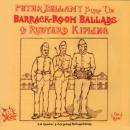
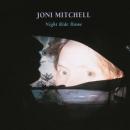


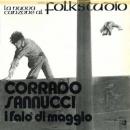
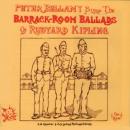

Canzone popolare tedesca presente nella raccolta “Des Knaben Wunderhorn” di Clemens Brentano ed Achim von Arnim (1805-08), i cui brani furono poi in gran parte musicati da Gustav Mahler tra il 1887 ed il 1898, alcuni per solo pianoforte e altri – come questo – per orchestra.
Propongo questo cinico brano per il percorso sulla violenza contro l’infanzia, ma ovviamente la morale sottesa è più profonda: Madre Natura, il fluire stesso della vita e del tempo, sono indifferenti al destino dell’uomo e la sua esistenza trascorre nel bisogno, nella sofferenza e nel pianto…
AAARGHHH!!!